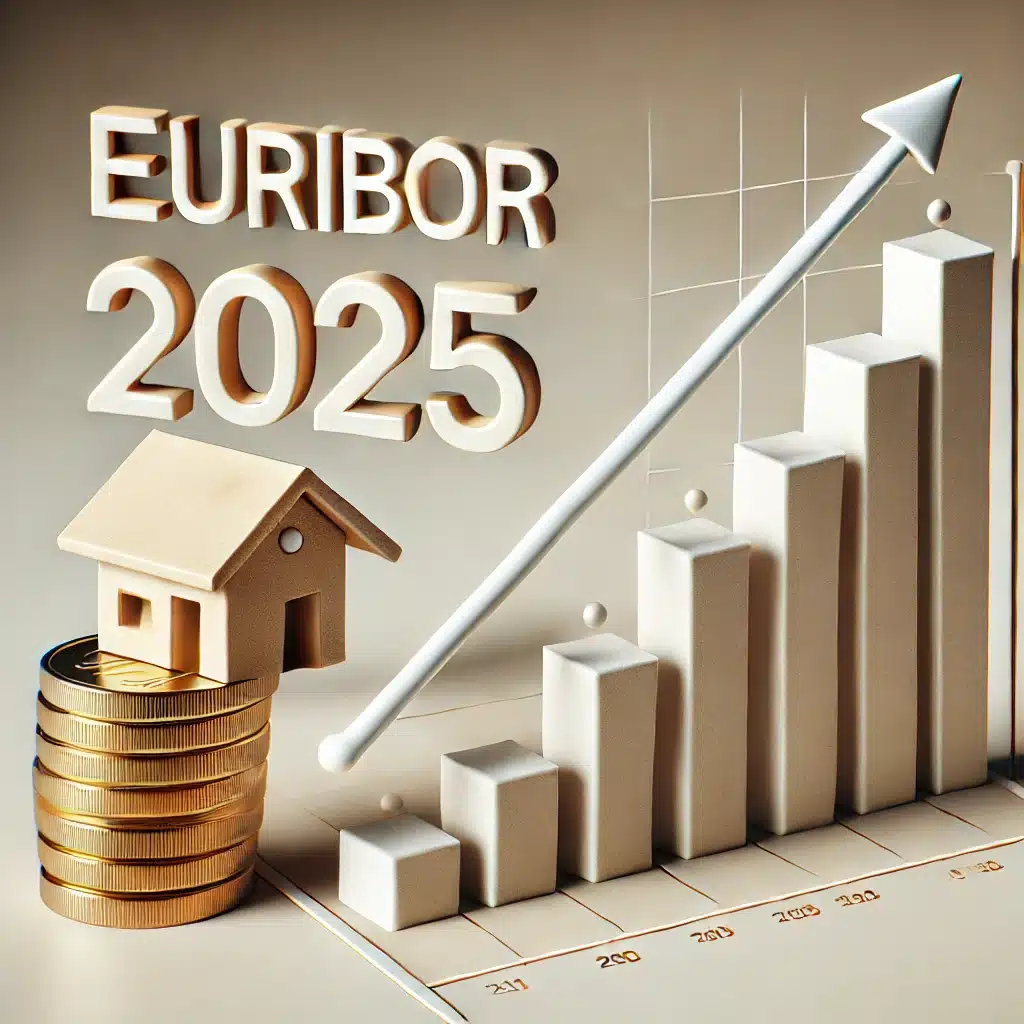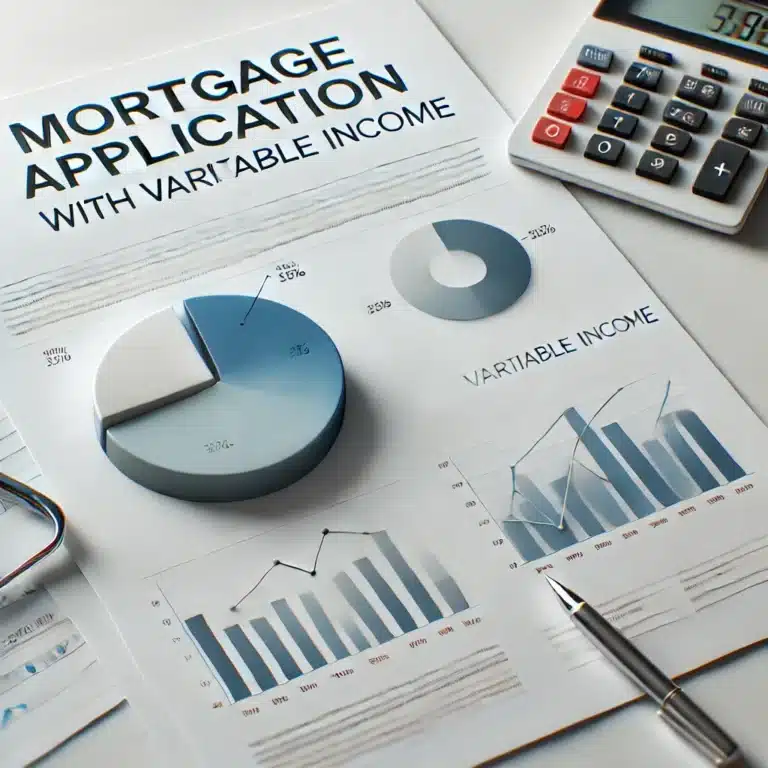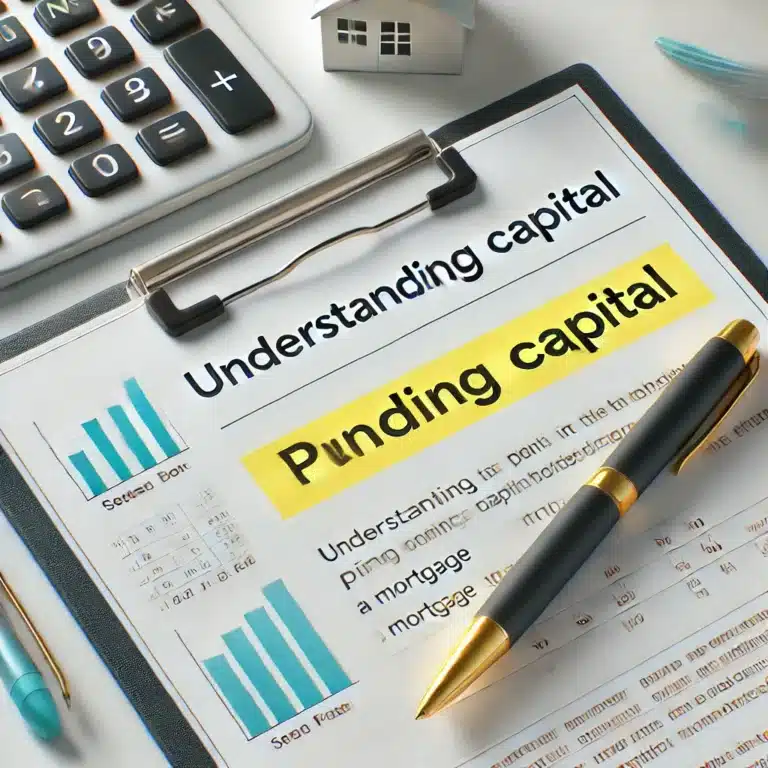
The Euribor, the benchmark for most variable mortgages in Spain, has marked an important change in recent months. After reaching historic levels in 2023, it closed 2024 on a downward trend, which has brought relief to many families with variable mortgages. However, what can we expect in 2025? This article looks at Euribor forecasts and how they could affect mortgages.
1. Euribor evolution in 2024
The Euribor ended 2024 with its largest annual decline, closing at around 2.4%. This decrease marked a respite for those with variable mortgages, reducing their monthly payments. The decline is mainly attributed to the monetary policies of the European Central Bank (ECB), which began to reduce interest rates after observing a containment of inflation.
2. What is expected for 2025?
General trend
By 2025, forecasts indicate that the Euribor will continue its decline, albeit more moderately. Analysts such as those at Bankinter project that the index could stabilize at around 2.1% until the end of 2026. Other experts even suggest that it could reach 1.5%, depending on how the European economy evolves.
Key factors
- ECB policies: The ECB’s interest rate cuts are aimed at stimulating economic growth. This measure will continue to influence the Euribor downward.
- Controlled inflation: The containment of inflation has allowed the ECB to ease its monetary stance, which benefits holders of variable mortgages.
- Economic recovery: A more stable economy could favor a sustained reduction in the Euribor.
3. Impact on variable mortgages
If the Euribor remains at low levels, holders of variable mortgages will enjoy lower repayments. For example, on an average €150,000 25-year mortgage with a 1% spread, a decrease in the Euribor from 2.5% to 2.1% could translate into significant monthly savings.
However, it is important to remember that variable mortgages remain subject to economic fluctuations. Although forecasts for 2025 are optimistic, Euribor behavior could change if economic conditions or ECB policies adjust.
What about fixed-rate mortgages?
Fixed-rate mortgages have gained popularity in recent years thanks to the stability they offer in an environment of economic uncertainty. Even if the Euribor falls, those who opted for a fixed interest rate will keep their payments constant, which can be an advantage for those who prioritize financial predictability.
5. Other factors to consider in 2025
Although the Euribor promises relief for variable mortgages, there are other factors that can affect family finances:
- Increase in the cost of living: Some taxes, such as VAT on electricity and food, are expected to rise again, which could have an impact on household budgets.
- Housing prices: If interest rates fall, demand for housing could increase, boosting prices.
What can you do as a mortgage holder?
If you have a variable mortgage, consider the following steps:
- Review your current conditions: Analyze if it is a good time to amortize part of the principal or renegotiate your mortgage.
- Evaluate a subrogation: If your bank’s conditions are not competitive, it may be advisable to change banks.
- Keeping you informed: Follow closely the evolution of the Euribor and the ECB’s policies.
For those considering taking out a mortgage, this could be a good time to explore options and negotiate favorable terms.
Conclusion
In summary, forecasts for 2025 suggest a continuation of the decline in the Euribor, which will translate into lower payments for variable mortgages. However, it is advisable to stay informed about general economic conditions and consider how other changes may affect the household budget.
Links of interest
The Euribor, the benchmark index for most variable mortgages in Spain, has shown a downward trend in 2024, closing the year at around 2.4% .
This decrease has eased the mortgage payments of many borrowers.
For 2025, forecasts indicate that the Euribor will continue its decline, albeit more moderately. Bankinter analysts estimate that the index could stabilize at around 2.1% until the end of 2026 Idealista
Other experts are even more optimistic, suggesting it could reach 1.5% during 2025 .
This behavior is attributed to the monetary policies of the European Central Bank (ECB), which has begun to reduce interest rates after controlling inflation Cinco Días
This trend benefits holders of variable mortgages, as their monthly payments decrease as the Euribor falls.
However, it is important to consider that, even if mortgage payments are reduced, other economic factors may influence personal finances. For example, VAT on electricity and some foods is expected to rise again in 2025, which could increase the cost of living El País



